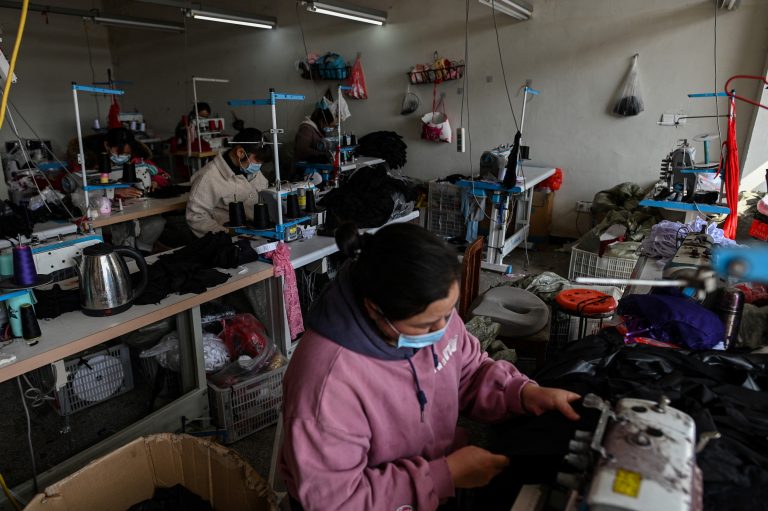Investigative reporting by British Sky News recently exposed the Chinese Communist Party’s (CCP) practice of selling Uyghur labor on the Chinese internet, where dozens of ads on mainland websites advertise Uyghurs for sale in batches of 50 to 100.
Uyghur Muslims are a Turkic ethnic minority residing primarily in the Xinjiang region. It is estimated that more than 1 million Uyghurs are currently being detained in Xinjiang under the Party’s notorious “re-education” methods. The CCP claims they are trying to prevent terrorism and religious extremism. The Communist Party’s persecution and attempt to culturally cleanse the region has been deflined as genocide by lawmakers from countries such as the United States, Canada, and the United Kingdon.
The Party, by comparison, refers to their efforts as “eradicating tumors,” and has called accusations of injustice against Uyghurs in Xinjiang “the lie of the century.”
The regime claims any negative information about the Xinjiang campaign is fabricated by “anti-China politicians.”
According to a recent report by the Australian Strategic Policy Institute (ASPI) titled Uyghurs for Sale, an estimated 80,000 — although the actual number may be much higher — Uyghurs were transferred out of Xinjiang between 2017 and 2019, for labor in 27 different factories in nine different provinces. The factories have ties to 82 well-known brands.
Success
You are now signed up for our newsletter
Success
Check your email to complete sign up
The ASPI report explained how workers were transferred out of Xinjiang under a CCP policy called “Xinjiang Aid.” Once transferred, they have to live in segregated dormitories, where they “undergo organised Mandarin and ideological training outside working hours.”
The laborers are subject to “constant surveillance” and “forbidden from participating in religious observances.”
Under Xinjiang Aid, “local governments and private brokers are paid a price per head by the Xinjiang provincial government to organise the labour assignments. The job transfers are now an integral part of the ‘re-education’ process, which the Chinese government calls ‘vocational training.’”
A CCP work report from 2019 claimed “those employed need to receive thorough ideological education and remain in their jobs.”
Sky News said that China’s leading search engine, Baidu, is being used for the postings that sell Uyghur labor online.
An agent from one of the companies selling Uyghurs told Sky News that workers were “examined politically” before they were transferred to other parts of China for labor. Once in other provinces, they were subjected to another “political examination.” Workers are accompanied by “supervisors” and put under “half-military management.”
Sky visited one factory in Shandong, where a propaganda reel from a local news department described 200 workers who were supposedly all very supportive of the CCP and pleased to be working. “They will continue creating a harmonious work environment for our Uighur compatriots,” the video claimed of the Uyghur workers.
The owner of the factory told Sky News that all the workers had returned home to Xinjiang due to the pandemic. He said Uyghur laborers earned “£300 per month [$415 USD approx.], and had air conditioners in their on-site dormitories,” which were monitored by security cameras and a front office that had riot gear. When workers wanted to leave the factory to go to the store, the company would take them in buses.
The Sky News investigation unfortunately did not get too much further than that. Once they were reported to local Communist Party authorities by the owner of the factory, 12 CCP officials quickly arrived and detained the journalists. They were subjected to two hours of questioning before being ordered to leave town.














